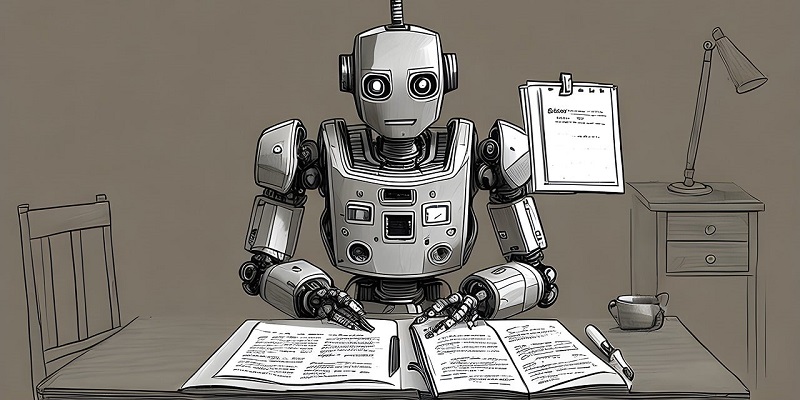In today’s digital age, the utilization of generative AI platforms like ChatGPT has enabled the creation of content based on user input. These systems draw upon a vast array of text they have “read” online, allowing them to generate articles, stories, and even news reports. However, recent developments related to AI content generation have brought forth important questions regarding the recognition, compensation, and overall credibility of news articles produced by these systems.
The New York Times’ prohibition on AI systems’ content scraping
A significant development in the AI landscape occurred when The New York Times implemented a prohibition on AI systems scraping their content for training machine learning models. This action reflects a growing concern over the usage of news articles created by these systems and raises questions about the impact on traditional journalism.
Recognition and Compensation for Writers
The Times’ decision shines a light on the broader issue of recognition and compensation for writers whose work helps facilitate AI content generation. As AI systems heavily rely on vast amounts of human-authored text, it is essential to acknowledge the contributions of writers and ensure they are fairly compensated. This raises ethical, legal, and philosophical questions regarding ownership and intellectual property in the realm of AI-generated content.
Evaluating the usage of work in AI systems
The Times’ stance marks a potential turning point as content-producing organizations consider the implications of their work being used in AI systems. It necessitates a reevaluation of the partnerships, licenses, permissions, and royalties that accompany the usage of copyrighted material. This action could have far-reaching consequences for both content creators and the development of AI technology itself.
The Challenges Faced by the Newspaper Industry
The implementation of AI in news content generation has exacerbated the existing challenges faced by the newspaper industry in the digital age. Rapid advancements in AI technology, coupled with changing consumer behaviors, have led to declining readership and revenue. News outlets must adapt to the new paradigms of information consumption while maintaining their journalistic integrity.
The Associated Press’ deal with ChatGPT
Contrary to The New York Times’ stance, the Associated Press recently signed a deal to allow ChatGPT to access its extensive archive. This decision signifies a different approach to AI utilization and highlights the ongoing debate about the role of AI in news production. It remains to be seen how this collaboration will affect news content creation and the industry as a whole.
The Uncertain Future of AI and News
As the intersection of AI and news continues to evolve, the winners and losers in this landscape remain undetermined. It necessitates a comprehensive understanding of how AI impacts the quality, accuracy, and diversity of news content. Industry leaders, journalists, and AI researchers must collaborate to shape policies and guidelines that prioritize ethical AI usage in the news sphere.
Smaller newspapers and the utilization of AI
Smaller newspapers face particularly challenging dilemmas regarding the adoption of AI systems in their newsrooms. They confront the difficult choice of either restricting access to their reporting or embracing AI to enhance operational efficiency and create more engaging content. Balancing the benefits of AI with ethical considerations and quality journalism is crucial to their survival and growth.
AI’s potential in news generation
Beyond analyzing data, AI exhibits promising potential in generating news stories without human involvement. Automated news content creation possesses the ability to produce large volumes of articles rapidly. However, concerns arise regarding the impartiality, biases, and accuracy of AI-generated content. Striking the right balance between human involvement and AI automation is essential in this evolving landscape.
Ensuring Credible and Trustworthy News in AI Research
At the heart of the discussion lies the question of maintaining credibility and ensuring accurate and trustworthy AI-generated news. It is imperative to explore techniques to verify the sources, validity, and objectivity of AI-generated content. Ethical guidelines, transparency, and quality assurance mechanisms can help prevent the dissemination of misinformation or manipulated narratives.
The impact of AI on news content generation raises consequential questions regarding recognition, compensation, and the credibility of AI-generated news articles. The stance taken by The New York Times signifies a pivotal moment in the industry, sparking debates about the usage of copyrighted material and the fair compensation of writers. Smaller newspapers face dilemmas in navigating AI adoption, while the potential for AI to independently generate news raises issues of accuracy and objectivity. The path forward requires collaboration between the news industry and AI researchers to shape policies that safeguard quality journalism and uphold ethical AI practices. By addressing these challenges, we can ensure a future where AI enhances news production while maintaining the integrity of the fourth estate.

